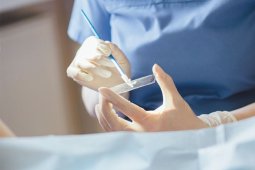Are Pap tests necessary after age 65 years?
Apr 19, 2022
A Pap smear is also known as Pap test. This can be defined as a screening procedure for cervical cancer. It tests for the presence of precancerous or cancerous cells on the cervix. The cervix is the opening of the uterus. The purpose of screening with the Pap test is to detect abnormal cells, such as cancer, that may develop into cancer if left untreated. The Pap test can also find noncancerous conditions, such as infections and inflammation.

Who should get a Pap Smear Test?
- Women over the age of 65 for normal Pap test results may be able to stop having Pap smears in the future.
- You should still get regular Pap smears even if you’re in a monogamous relationship because the HPV virus can be dormant for years, and therefore, suddenly become active.
- No test if there has been adequate prior normal screening.
- Women who are HIV positive, or who have been treated for a precancerous cervical lesion or cervical cancer, may need to have more frequent screenings or continue screening beyond age 65.
- Older than age 65, you can stop having cervical cancer screening after age 65 if you do not have a history of moderate or severe cervical dysplasia or cervical cancer and if you have had either three negative Pap test results in a row or two negative co-test results in a row within the past 10 years, with the most recent test performed within the last 5 years.
Important Notes for Women opting for Pap Smear:
- In women who have had normal annual Pap tests for many years and are in monogamous relationships, the risk of cervical cancer is very low.
- Women should have a history of normal tests, at least three within the past decade. If they haven’t, they should get another Pap test whether they have passed 65 or not.
- Even if they can skip the annual Pap smear, women still need regular discussions with their physicians to review any symptoms like bleeding, discharge, incontinence or pain.









